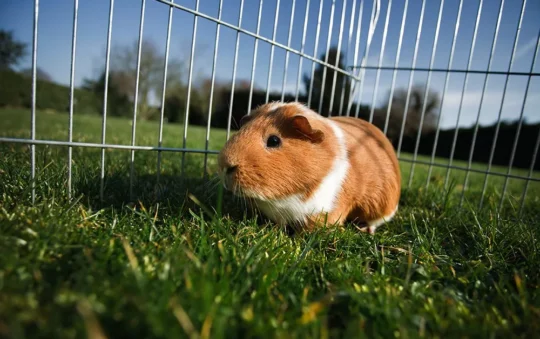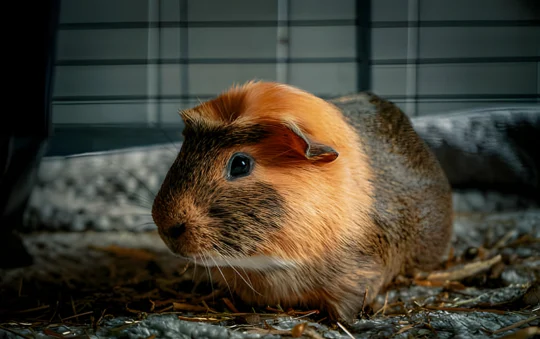Creating a guinea pig cage yourself can be a fun and rewarding DIY project. Here’s a simple guide to help you make a comfortable and safe home for your furry friends:
Materials:
- Cage Frame:
- C&C (Cube and Coroplast) grids: These are often used for making DIY guinea pig cages. You can find them at home improvement stores or online.
- Coroplast sheets: To create the base of the cage.
- Connectors:
- Cable ties or zip ties: To secure the grids together.
- Connectors for joining the grids securely (optional).
- Flooring:
- Fleece blankets or towels: For comfort.
- Puppy training pads or newspaper: To absorb urine.
- Accessories:
- Guinea pig hideouts, tunnels, and toys.
- Tools:
- Scissors: To cut the coroplast and fleece.
- Wire cutters: To trim the excess length of cable ties.
- Ruler or measuring tape.
- Measure and Plan:
- Determine the size of the cage based on the space available and the number of guinea pigs you have. A general guideline is to provide at least 7.5 square feet of space per guinea pig.
- Prepare the Coroplast Base:
- Cut the coroplast sheets to match the size of the cage floor.
- Fold the edges of the coroplast upward to create a shallow tray. This helps contain bedding and makes cleaning easier.
- Assemble the Grids:
- Connect the C&C grids to form the sides of the cage. Use cable ties to secure the grids together.
- Consider creating a top cover to prevent your guinea pigs from escaping.
- Attach the Coroplast Base:
- Place the coroplast base into the assembled grid frame. The folded edges should sit inside the grid walls.
- Use cable ties to secure the coroplast to the grids at intervals, ensuring a stable and secure structure.
- Prepare the Bedding:
- Line the coroplast base with puppy training pads or newspaper.
- Place fleece blankets or towels on top for your guinea pigs to rest on. Fleece is a popular choice as it is soft, washable, and reusable.
- Add Accessories:
- Include guinea pig hideouts, tunnels, and toys to enrich their environment.
- Ensure there’s a dedicated area for food and water.
- Secure the Cage:
- Place the cage in a safe and well-ventilated area.
- Check that all cable ties are tight and secure.
- Maintenance:
- Regularly clean the cage by removing soiled bedding, washing fleece, and wiping down the coroplast.
- Keep an eye on your guinea pigs’ well-being and adjust the cage setup as needed.


